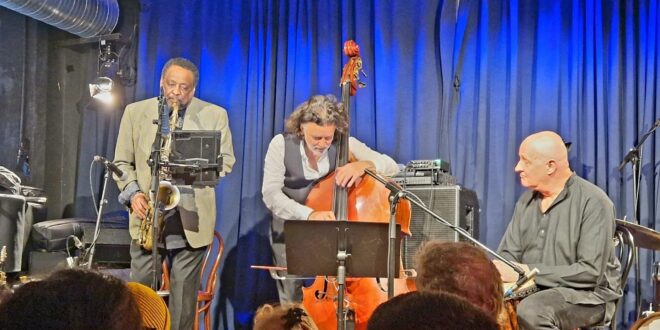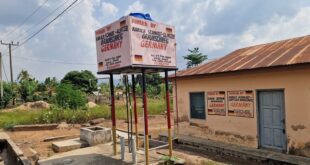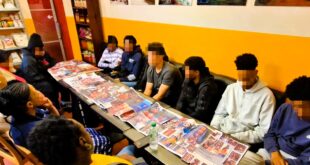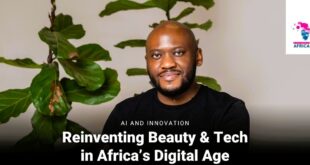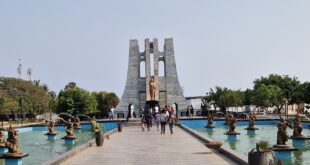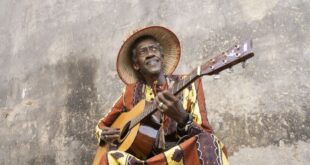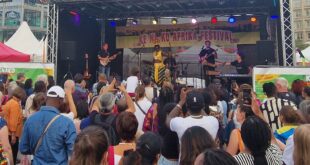Berlin’s image as a progressive, multicultural city is under scrutiny once again. In this article, Amal Abbass confronts the distortion of Black history through a recent exhibition at Alexanderplatz that misrepresented the origins of blues music. She writes about what she describes as a broader pattern of how Germany’s public memory suppresses uncomfortable truths and how the Black community must act against it
![]()
Berlin, often hailed as a hub of progressive multiculturalism, remains a deeply contested space for Black representation. In June 2025, this tension came to a head with an exhibition titled The Origin of the Blues at Alexanderplatz (28 May – 8 June 2025). Its banners falsely claimed:
“Blues music began in the 19th century when Africans came to work in South America. These work songs, sung during labour, laid the foundation for the blues.”
This statement is not only historically inaccurate, it is a dangerous erasure. The blues did not emerge from voluntary labour in South America. It was born from the trauma and resistance of enslaved Africans in the US South. By omitting the brutal history of slavery and racism, the exhibition whitewashed the truth and robbed the music of its origins and depth.
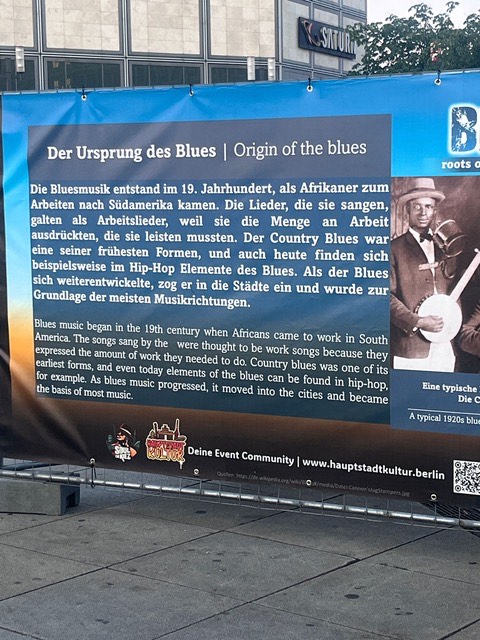
Silencing Critique: A Textbook Case of Institutional Gaslighting
When Southeast Asian activist Antonia Lim raised these concerns with the event’s organizers, Hauptstadtkultur, she was falsely told the banners had already been removed. But upon returning to Alexanderplatz, she found them still on display.
This wasn’t a simple oversight, it was institutional gaslighting. And it reveals a broader strategy often used by institutions to deflect criticism and silence historically marginalized voices.
Antonia Lim’s intervention must be acknowledged, not just as an act of solidarity, but as a vital disruption in a public discourse that too often excludes Black and allied voices. As ISD (Initiative Schwarze Menschen in Deutschland) organizer Tahir Della has said, “If we do not speak up, our histories are not only forgotten, they are rewritten by others.” Antonia’s vigilance is a clear example of the collective action required to hold institutions to account.
The Truth about the Blues
The blues is more than music. It is testimony. As scholars like Angela Davis (Blues Legacies and Black Feminism), W.E.B. Du Bois (The Souls of Black Folk), and Bernice Johnson Reagon have shown, blues songs emerged from the spirituals, field hollers and oral traditions of enslaved Africans. These were not just “work songs”—they were acts of resistance, cries for freedom and expressions of enduring humanity in the face of unspeakable violence.
As Reagon writes, “The freedom struggle is rooted in the music of Black people.” To reduce the blues to apolitical labour music is to erase both the suffering and the survival that gave rise to it.
Germany’s Pattern of Erasure
The exhibition is part of a longer pattern in Germany. Historian Sander L. Gilman described the country’s approach to race as a practice of “Blackness without Blacks.” From colonial-era human zoos to contemporary museum exhibitions that sidestep the German genocide in Namibia, Black histories in Germany are too often presented in sanitized, incomplete or inaccurate ways.
As Fatima El-Tayeb warns in European Others, institutions often celebrate Black culture only when it does not disrupt White comfort or challenge the status quo. This selective form of “diversity” avoids confronting colonialism, racism and the legacies of exploitation.
AfricAvenir International e.V., a Berlin-based organization with roots in Cameroon, has long challenged this practice, advocating for the centering of African perspectives in German cultural life. As founder Prince Kum’a Ndumbe III notes, “Decolonizing memory is not just about the past, but about justice and dignity in the present.”
Why Activist Testimony Matters
Credit matters. Antonia Lim’s vigilance is not a footnote—it is central to the story. Activists invest intellectual, emotional and strategic labour in making truth visible. Recognizing that labour is essential to countering the systemic erasure of Black and allied voices in public memory.
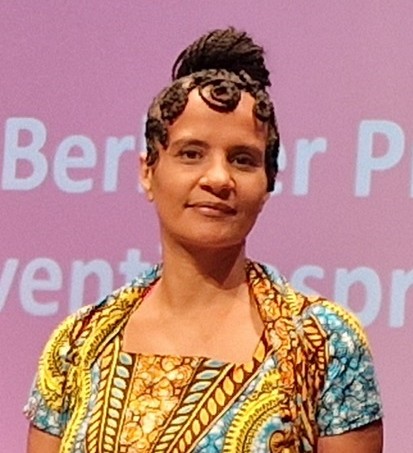
As Adefra New Generation Peggy Piesche has emphasized, “Our interventions are not only corrections—they are acts of survival and future-making.” By crediting activists, we empower others to speak up, intervene and shape public history.
Black-Led Solutions: Community Voices and Intersectional Solidarity
True change in public culture requires more than apologies or token inclusion. It demands the leadership of Black communities and organizations with a track record of challenging erasure and fostering dialogue.
AfricAvenir International e.V. creates spaces where African and Afro-diasporic perspectives are not only included but centered. Through workshops, exhibitions, and education, they promote reparative justice and narrative sovereignty.
ISD (Initiative Schwarze Menschen in Deutschland), founded in 1985, remains at the forefront of Black self-determination, anti-racism work and cultural memory. Their Homestory Deutschland project and Black History Month programming have laid the groundwork for new generations of Black German scholars, artists and organizers.
As Berlin-based curator Natasha A. Kelly reminds us, “When Black people control the narrative, our histories become sites of resistance and healing, not just pain.”
This struggle is intersectional. The silencing of Black histories is part of a broader exclusion that affects Sinti and Roma, Jewish, Asian, queer and disabled communities. Solidarity across these struggles is not only strategic—it is essential to justice.
Moving Forward: Demands and Actions
Tubman.network e.V. calls for the following:
– A public apology and correction from Hauptstadtkultur
– Permanent removal of misleading banners from public view
– Genuine inclusion of Black historians, artists and communities in all programming about Black culture
– An open forum for Black cultural workers in Berlin to shape future standards
– Ongoing collaboration with organizations like AfricAvenir and ISD to ensure accountability and representation
As Achille Mbembe reminds us: “The right to narrate is the right to exist.”
This is about more than one exhibition. It is about who has the power to tell the story—and who is erased from it.
Join the Campaign! We invite readers, artists, organizers, and cultural institutions to stand with us in reclaiming narrative sovereignty.
Website: www.tubman-network.org
Contact: aabbass@tubman-network.org
@tubman.network.berlin
Let our histories be told by us, for us—and with the full truth they carry.
Special thanks to Antonia Lim for her courage, vigilance, and solidarity.
![]()
Amal Abbass is a decolonial educator, community organizer, and co-founder of Tubman.network e.V., a Berlin-based organization committed to justice through memory, resistance, and the centering of Black and African voices in public culture.
 THE AFRICAN COURIER. Reporting Africa and its Diaspora! The African Courier is an international magazine published in Germany to report on Africa and the Diaspora African experience. The first issue of the bimonthly magazine appeared on the newsstands on 15 February 1998. The African Courier is a communication forum for European-African political, economic and cultural exchanges, and a voice for Africa in Europe.
THE AFRICAN COURIER. Reporting Africa and its Diaspora! The African Courier is an international magazine published in Germany to report on Africa and the Diaspora African experience. The first issue of the bimonthly magazine appeared on the newsstands on 15 February 1998. The African Courier is a communication forum for European-African political, economic and cultural exchanges, and a voice for Africa in Europe.

